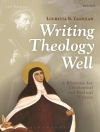Anger is one of the basic emotions of human emotional experience, informing and guiding many of our choices and actions. Although it has received considerable scholarly attention in a number of disciplines, including linguistics, a basic question has still remained unresolved: why do variations in the folk model of anger exist across languages if it is indeed a basic emotion rooted in largely universal bodily experience? By drawing on a wide selection of comparable linguistic data from dozens of languages (including a number of less-researched languages), this volume provides the most comprehensive account of what is universal and what is variable in the folk model of anger – and why. It also investigates the role that metonymies might play in the emergence of anger-related metaphors and in what ways context influences or shapes anger metaphors and thereby the resulting folk model of anger. No such volume exists in the (cognitive) linguistic literature on anger – or on emotions for that matter. The book is thus an essential contribution to the study of anger and will serve as basic reading for any researcher interested in how the conceptualization of anger is constructed via the interplay of bodily experience, language and the larger cultural context.
Reka Benczes & Zoltan Kovecses
Metaphors of ANGER across Languages: Universality and Variation [PDF ebook]
Volume 2: From Japanese to Ukrainian
Metaphors of ANGER across Languages: Universality and Variation [PDF ebook]
Volume 2: From Japanese to Ukrainian
Cumpărați această carte electronică și primiți încă 1 GRATUIT!
Limba Engleză ● Format PDF ● Pagini 720 ● ISBN 9783111559780 ● Editor Reka Benczes & Zoltan Kovecses ● Editura De Gruyter ● Publicat 2024 ● Descărcabil 3 ori ● Valută EUR ● ID 10004894 ● Protecție împotriva copiilor Adobe DRM
Necesită un cititor de ebook capabil de DRM












